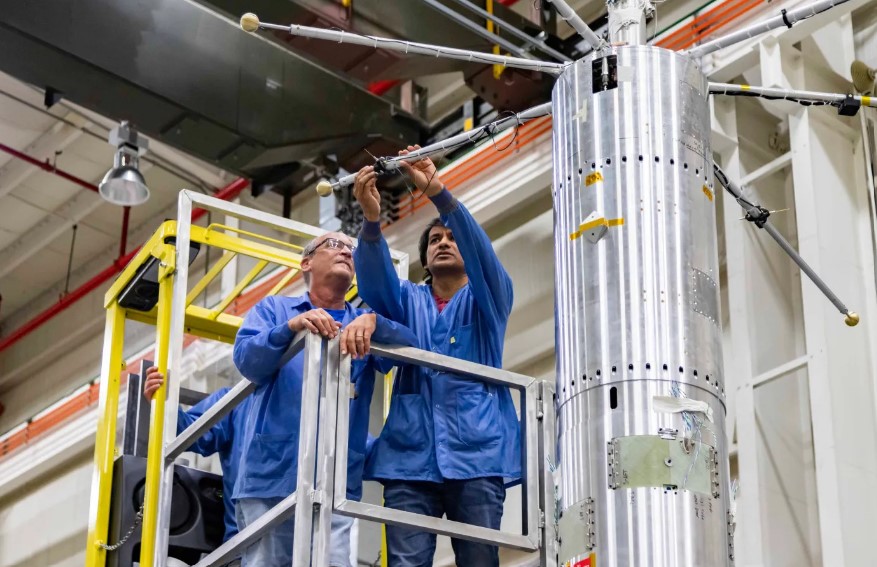- Sunday, November 24, 2024
Aroh Barjatya (R) is currently serving as director of the Space and Atmospheric Instrumentation Lab. (Photo credit: NASA’s Wallops Flight Facility/Berit Bland)

By: Vivek Mishra
The recent total solar eclipse witnessed NASA launching sounding rockets under the leadership of Aroh Barjatya, an India-born researcher.
On April 8, as the solar eclipse cast shadows over North America, NASA deployed three sounding rockets to investigate the effects of the temporary dimming of sunlight on Earth’s upper atmosphere.
Aroh Barjatya, currently serving as a professor of engineering physics at Embry-Riddle Aeronautical University in Florida and director of the Space and Atmospheric Instrumentation Lab, spearheaded this mission, according to a NASA statement.
The mission, titled ‘Atmospheric Perturbations around Eclipse Path (APEP),’ saw its sounding rockets launch from NASA’s Wallops Flight Facility in Virginia. Post-launch, Barjatya shared his gratitude on LinkedIn, saying, “My deepest gratitude to all my fellow researchers at collaborating institutions and insanely capable and stellar students at Embry-Riddle Aeronautical University, as well as, most crucially, to everyone at NASA Wallops Sounding Rocket Program Office and NASA Goddard Space Flight Center for helping accomplish six complex rocket missions in six months!!!”
Aroh, the son of Ashok Kumar Barjatya, a chemical engineer, and Rajeshwari, a homemaker, completed his schooling in various Indian locales including Patalganga, Hyderabad, and Jaipur.
His journey to this achievement started in various cities across India before he relocated to the United States, said his family.
He obtained his electronics engineering degree from Walchand Institute of Technology in Solapur.
Moving to the US in 2001, he earned his master’s in electrical engineering from Utah State University, followed by a PhD in spacecraft instrumentation from the same institution, shared his sister Apurva Barjatya, a mechanical engineer.
(PTI)